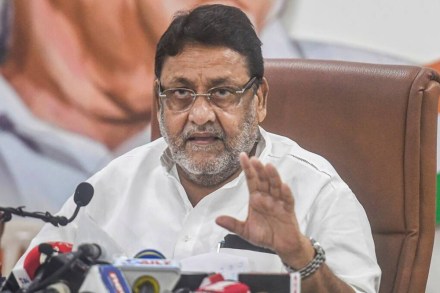The Bombay High Court on Friday refused to entertain minister Nawab Malik’s plea seeking one day release from prison in order to go to the Maharashtra State Assembly to vote in the Rajya Sabha elections. The HC asked Malik to go to the appropriate bench of Prevention of Money Laundering Act (PMLA) court that hears bail applications. A day after a PMLA barred jailed NCP leaders Nawab Malik and Anil Deshmukh from casting their votes on the eve of Rajya Sabha elections, both politicians moved the Bombay High Court challenging the decision. On Thursday, both the leaders had made a plea before the special court in Mumbai to allow them to be released for a day so that they could vote in the Upper House elections. Earlier, the Enforcement Directorate objected to the petitions and said that prisoners don’t have voting rights, while citing the Representation of People Act.
While Malik’s lawyer sought an urgent hearing, Deshmukh’s lawyer did not. The PMLA court, while pronouncing its orders, stated that the leaders are “not entitled to vote” and “cannot claim entitlement” to go to the state assembly to cast their votes for the Rajya Sabha.
Lawyers from both the parties (ED and NCP leaders) pointed out contrasting scenarios from the past concerning the eligibility of a person under trial to vote in the Upper House. After hearing their arguments, the special court, while referring to an earlier Supreme Court judgment, stated: “It is true there are divergent views of the honourable high courts in respect of voting rights of undertrials. It is well settled that the right to vote is not a fundamental right but a statutory right and subject to limitations…”
Malik had pointed to the seriousness of the Rajya Sabha elections from Maharashtra, where seven candidates are in fray for six seats. Malik said that his party would be “prejudiced” in case he was not allowed to go to the Vidhan Sabha and vote in a closely fought election.
The two leaders also pointed to a case from the 2017 Presidential race where NCP leader Chhagan Bhujbal was allowed to cast his vote while in custody.
“It is imperative to note that there is a difference between voting for Presidential elections and Rajya Sabha elections. The Presidential Elections Act is governed by the Presidential and Vice Presidential Elections Act, 1952… there is no provision under the Act to prohibit an undertrial to cast a vote in the Presidential elections,” the special court stated.
